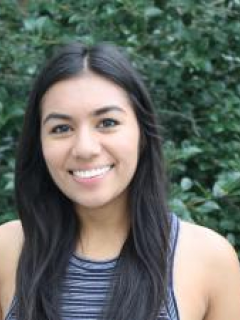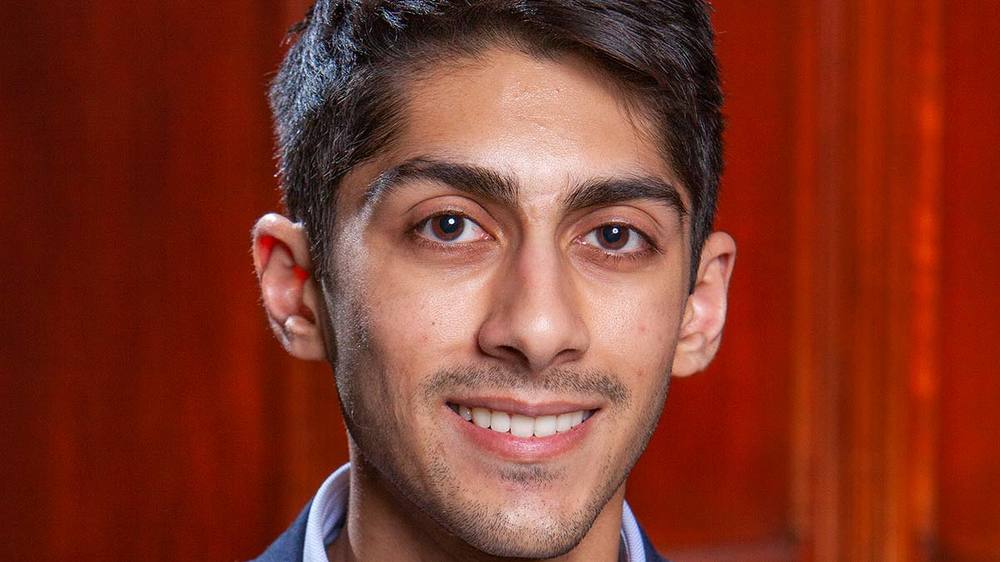
WASHINGTON, DC– Rhodes Trust announced the names of the 32 Americans chosen as the prestigious Rhodes Scholars representing the United States. Four of them are Indian Americans: Serena Alagappan, NY; Ananya A. Malhotra, GA; Ananya A. Malhotra, IN; Prathm Juneja, NJ; and Kritika Singh; VA.
Serena Alagappan
Alagappan is a senior at Princeton majoring in Comparative Literature. Serena’s writing and research explores the ways in which identity and modes of expression shape art. Serena is the president of the Princeton University American Sign Language Club and the Editor-in-Chief at the Nassau Weekly.

A published author of fiction, nonfiction, and poetry, Serena has also interned at O, The Oprah Magazine, and the Religion and Resettlement Project where she interviewed and preserved stories of Holocaust survivors. At Oxford, Serena will pursue an M.Sc. in Social Anthropology and an M.St. in World Literatures in English.
Ananya A. Malhotra

Malhotra is a senior at Princeton University’s Woodrow Wilson School of Public and International Affairs. Her research examines transnational legacies of intergenerational trauma typically excluded from nuclear history, and her senior thesis uses oral histories to examine the consequences of nuclear weapons testing in the American southwest.
While interning at United Nations Women, Ananya created a program for youth gender equality activists. Ananya plans a career as a human rights lawyer and an academic. At Oxford, Ananya will do the M.Phil. in International Relations.
Prathm Juneja,
Edison, New Jersey, is a senior at the University of Notre Dame, graduating in December with majors in Political Science and Computer Science. Through his undergraduate studies and his work, Prathm grapples with how technology and policy can work together to make government more equitable.

Prathm’s undergraduate thesis statistically analyzes the Interstate Voter Registration Crosscheck Program and its impact on voter turnout rates. Prathm worked as a Legislative and Innovation Intern for the South Bend Mayor’s Office. Prathm is a Truman Scholar. At Oxford, Prathm will pursue an M.Sc. in Social Data Science, as well as the Master of Public Policy.
Kritika Singh
Sigh is a senior at Northeastern University where she majors in bioengineering. She is a Truman Scholar and a Goldwater Scholar. Kritika is founder and CEO of Malaria Free World, a non-profit focused on malaria awareness and education, and she has worked in research labs at Massachusetts General Hospital in epigenetics and at the Dana Farber Cancer Institute.

She has published in her field, has a patent, and founded the Northeastern University Global Health Initiative. Kritika aspires to a career as physicianscientist-advocate focused on emerging diseases. At Oxford, she plans to do a D.Phil. in biomedical sciences at the intersection of chemical biology and bioengineering.
For the third consecutive year, the class overall is majority-minority and approximately half are first-generation Americans. One is the first transgender woman elected to a Rhodes Scholarship; two other Scholars-elect are non-binary.
“This year’s American Rhodes Scholars—independently elected by 16 committees around the country meeting simultaneously—once again reflect the extraordinary diversity that characterizes and strengthens the United States. They will go to Oxford in September 2020 to study in fields broadly across the social, biological and physical sciences, and in the humanities. They are leaders already, and we expect their impact to expand exponentially over the course of their public-spirited careers,” said Elliot F. Gerson, American Secretary of the Rhodes Trust.
Rhodes Scholarships provide all expenses for two or three years of study at the University of Oxford in England and may allow funding in some instances for four years. Mr. Gerson called the Rhodes Scholarships, “the oldest and best-known award for international study, and arguably the most famous academic award available to American college graduates.”
They were created in 1902 by the Will of Cecil Rhodes, and are provided in partnership with the Second Century Founders, John McCall MacBain O.C. and The Atlantic Philanthropies, and many other generous benefactors. The first class of American Rhodes Scholars entered Oxford in 1904; those elected today will enter Oxford in October 2020.
Rhodes Scholars are chosen in a two-stage process. First, applicants must be endorsed by their college or university. This year more than 2,900 students began the application process; 963 were endorsed by 298 different colleges and universities. Committees of Selection in each of 16 U.S. districts then invite the strongest applicants to appear before them for interview.
This class includes the first Rhodes Scholar ever elected from the University of Connecticut. And there were finalists from 14 institutions that had never before had a Rhodes Scholar. Applicants are chosen on the basis of the criteria set down in the Will of Cecil Rhodes. These criteria are first, academic excellence. This is a critical but only threshold condition.
A Rhodes Scholar should also have great personal energy, ambition for impact, and an ability to work with others and to achieve one’s goals. In addition, a Rhodes Scholar should be committed to make a strong difference for good in the world, be concerned for the welfare of others, and be conscious of inequities.
The 32 Rhodes Scholars chosen from the United States will join an international group of Scholars chosen from 23 other jurisdictions (more than 60 countries) around the world, and for the second year, two Scholars from any country in the world without its own Scholarship.
In addition to the 32 Americans, Scholars are also selected from Australia, Bermuda, Canada, China, the nations of the Commonwealth Caribbean, East Africa, Germany, Hong Kong, India, Israel, Jamaica, Kenya, Malaysia, New Zealand, Pakistan, Saudi Arabia, Singapore, Southern Africa (South Africa, plus Botswana, Lesotho, Malawi, Namibia and Eswatini), Syria/Jordan/Lebanon/Palestine, the United Arab Emirates, West Africa (including Benin, Burkina Faso, Cape Verde, Gambia, Ghana, Guinea, Guinea-Bissau, Ivory Coast, Liberia, Mali, Mauritania, Niger, Nigeria, the island of Saint Helena, Senegal, Sierra Leone, São Tomé and Principe, and Togo), Zambia, and Zimbabwe.














